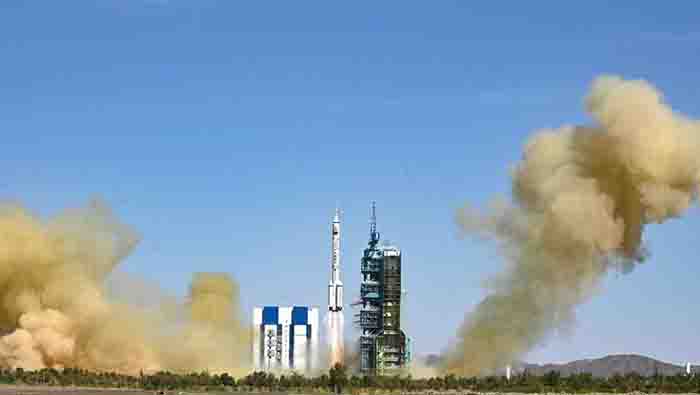
Tiangong space station: China on Sunday launched three astronauts into space as a part of its mission to complete assembly work on its permanent orbiting space station.
The Shenzhou 14 crew blasted off from the Jiuquan Satellite Launch Center on the edge of the Gobi Desert at 10:44 a.m. (02:44 GMT). The three astronauts will spend six months on the Tiangong station, which translates to "heavenly palace."
The space station is expected to be complete by the end of the year, a major feat for China's three-decades-long manned space program that kicked off in 1992 under the codename "Project 921".
The completion of the station, nearly one-fifth the size of the International Space Station (ISS), is expected to cap a decade of President Xi Jinping's leadership of the ruling Communist Party.
The Shenzhou 14 crew took off in a Long March-2F rocket that was used to launch China's first crewed spaceflight on the Shenzhou-5 mission in 2003. They will oversee the addition of two laboratory modules that are scheduled to join the main Tianhe living space that was launched in April last year.
In a launch that was broadcast live on state television, the rocket could be seen reaching the low Earth orbit and opening its solar panels, drawing applause from ground controllers at the launch site and in Beijing.
The crew consists of commander Chen Dong and astronauts Liu Yang and Cai Xuzhe, who will assemble the three-module structure by joining the existing Tianhe foundational module with two modules set to arrive in July and October.
Before takeoff, Chen, 43, said the arrival of the new modules will "provide more stability, more powerful functions, more complete equipment."
While it is 46-year-old Cai’s first space trip, Liu, 43, is a space veteran who became China's first female astronaut to reach space on the Shenzhou 9 mission in 2012.
China's space programme is run by the People's Liberation Army, which led to the United States excluding it from the International Space Station.